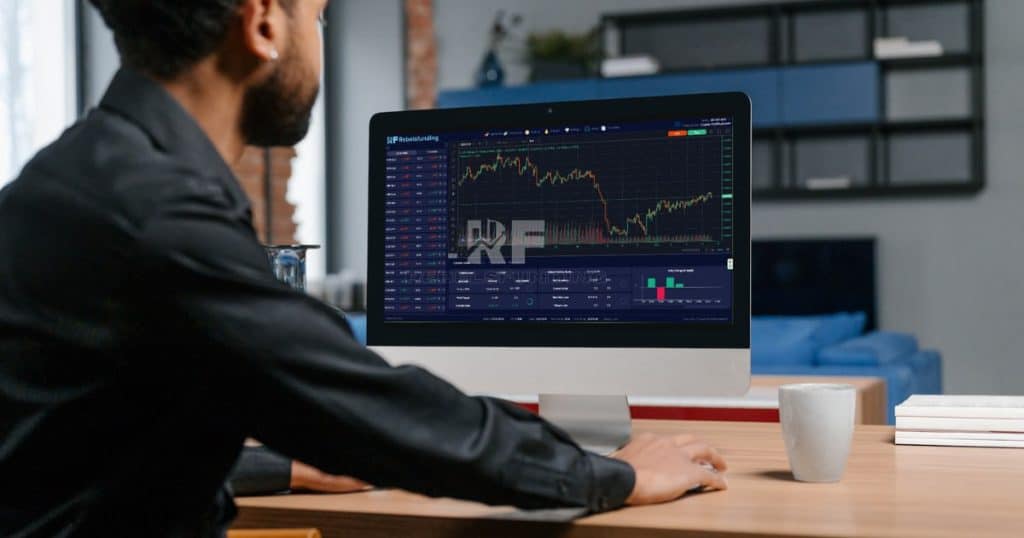9 Common Trading Mistakes to Avoid for Profitable Results

Trading a prop firm‘s funded account is a great opportunity that allows new and experienced traders to buy and sell various assets for profit with very little investment.
However, without proper knowledge and precautions, you may encounter avoidable losses.
In this blog post, we will discuss nine common trading mistakes to avoid for successful results:
1. Lack of Research and Planning
(i) Jumping into trades without proper research:
Research and planning are crucial steps in the trading process.
Without a thorough understanding of market trends and dynamics, traders may enter trades without a clear strategy or expectation.
This can lead to impulsive decisions and a lack of direction, ultimately resulting in losses.
(ii) The importance of creating a well-thought-out trading plan:
A well-thought-out trading plan can help traders stay focused and avoid making impulsive decisions.
It should include risk management strategies, entry and exit points, and a clear understanding of the trader’s goals and risk tolerance.
2. Ignoring Risk Management
(i) The role of risk management in preserving capital:
Risk management is essential for preserving capital and minimizing potential losses. Traders should set appropriate stop-loss levels to mitigate potential losses.
(ii) Implementing position sizing strategies to mitigate potential losses:
Position-sizing strategies can help traders manage their risk exposure.
By adjusting position sizes based on risk tolerance and market conditions, traders can maximize their potential gains while minimizing their potential losses.
3. Emotional Trading
(i) The impact of emotions on trading decisions:
Emotions can significantly impact trading decisions, leading to impulsive and irrational choices.
Traders should strive to maintain a rational mindset and avoid letting emotions dictate their trading decisions.
(ii) Overcoming fear and greed-driven choices:
Fear and greed are common emotions that can drive trading decisions.
However, these emotions can lead to poor decision-making and significant losses.
Traders should strive to overcome these emotions and make rational trading decisions.
4. Chasing Losses
(i) Explanation of the sunk cost fallacy:
The sunk cost fallacy is the tendency to continue investing in a losing trade to recoup previous losses.
This can lead to a vicious cycle of chasing losses that ultimately results in significant financial harm.
(ii) The danger of trying to recover losses through impulsive trades:
Trying to recover losses through impulsive trades can lead to a series of poor decisions.
Traders should avoid chasing losses and instead focus on making rational trading decisions.
5. Overtrading
(i) Overtrading and its negative consequences:
Overtrading occurs when traders trade excessively, often resulting in poor decision-making and significant losses.
Overtrading can lead to burnout, emotional exhaustion, and financial strain.
(ii) Importance of patience and waiting for high-probability setups:
Patience is a critical aspect of trading. Traders should avoid impulsive trades and instead wait for high-probability setups. This can help traders maximize their potential gains while minimizing their potential losses.
6. Lack of Discipline as a Trading Mistake
(i) The role of discipline in sticking to your trading plan:
Discipline is essential for sticking to the trading plan. Traders should avoid impulsive trades and instead focus on executing their well-thought-out trading strategy.
(ii) Avoiding impulsive trades and staying consistent:
Impulsive trades can lead to poor decision-making and significant losses. Traders should strive to avoid impulsive trades and instead focus on staying consistent with their well-thought-out trading plan.
7. Neglecting Fundamental and Technical Analysis
(i) Importance of both fundamental and technical analysis:
Both technical and fundamental analysis are essential for making informed trading decisions. Neglecting either analysis type can lead to uninformed decisions and significant losses.
(ii) Neglecting either analysis type can lead to uninformed decisions:
Neglecting either fundamental or technical analysis can lead to uninformed decisions. Traders should strive to combine both types of analysis for better results.
8. Following the Herd
Following the herd can be tempting when trading. When the crowd moves in a certain direction, it’s easy to assume they know something you don’t.
However, succumbing to herd mentality can be a perilous journey.
Collective decisions can lead to abrupt and unpredictable changes. Instead of being swept away by the crowd, strive for independent thinking and analysis.
9. Lack of Continuous Education
The financial world is a dynamic realm where new information and trends emerge daily.
Staying ahead of the curve requires a commitment to continuous learning.
Ignoring this aspect can lead to stagnation and missed opportunities.
As a trader, you must constantly adapt to changes in market dynamics, economic conditions, and technological advancements.
Investing in your knowledge is one of the most valuable investments you can make. There are numerous resources available to aid in your learning journey.
Books authored by renowned traders, online courses, webinars, trading forums, and financial news outlets are all excellent sources of information.
The more you educate yourself, the better equipped you’ll be to make informed decisions and navigate the complexities of trading.
In summary, by prioritizing risk management, discipline, and continuous learning, traders can increase their chances of maximizing their potential gains and minimizing their potential losses.
Always remember that cultivating good trading habits is essential for long-term success, so avoid the common mistakes outlined in this post and focus on making informed decisions based on your own research and analysis.
In the end, successful trading is more than just making money; it’s about developing the skills, habits, and mindset that set you on a path toward lasting success.




